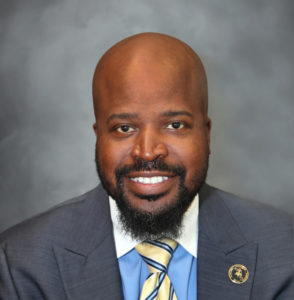By Keith Jacobs

The most polarizing aspect of the traditional public school system is that students encounter extensive and troubling variations in their school experience based on their socioeconomic or minority status. This aspect has for decades produced discriminatory practices.
Minorities and low-income families, for whom education is the link to success and escape from generational poverty, have suffered the consequences of a system that does not understand, nor adjust to, their needs. Nationwide, an achievement gap between advantaged and disadvantaged students has persisted for nearly 50 years.
So, what role should the government play in ensuring that these rights are restored to all children?
It took federal government intervention in the case of the Little Rock Nine and Brown v. Board of Education to combat discriminatory practices, such as Jim Crow and the concept of separate but equal, which were established by state and local governments. The government had a duty to ensure the equitable rights of all students regarding their education. At the time, these interventions were considered unpopular and brazen, but as we review the historical context, we revere the pioneers who had the gumption to stand up for what was right.
As we survey the education landscape, we hear our leaders say they want all children to receive a first-class, free public education that will prepare them for college or a career. Unfortunately, the current system neglects the specific needs of minority and low-income students while also failing to ensure equity of resources, standards and support across all schools.
In my experience, I was repeatedly told that a student’s ability to compute would lead him or her to a higher-paying job and ultimate success. This line of thought has led many school districts to curtail their curriculum and limit career, technical and arts education. Escaping from low-income situations is far more complicated than our current system would acknowledge.
Students in low-income neighborhoods also typically need support to combat socioeconomic deficiencies such as insufficient sleep, poor nutrition and inadequate clothing. These students are prone to physical and cognitive consequences that can lead to despair and render them apathetic toward education. Educational choice options can be tailored to address these obstacles.
The innovative response to this problem has been to create choice options that allow all students to receive an education that is best suited for their specific needs. Charter schools provide a variety of important benefits, such as innovation and specialization. But they remain controversial because choice opponents believe charter schools compete with, and remove funds from, traditional public schools. Such erroneous thinking has resulted in widespread discrimination toward families who exercise choice by attending charter schools. These families deserve the same rights and protections from the government as any other group.
Florida is at a unique crossroads. Choice opponents have been focused on funding for traditional public schools, standards and accountability, but have paid insufficient attention to equity learning for all students. This leads to discriminatory practices – such as restricting access to necessary funding — toward charter schools, two-thirds of whose students are black or Hispanic. State lawmakers can end these practices by ensuring that charters receive their fair share of revenues from tax referendums.
As President Dwight D. Eisenhower demonstrated in 1957 with the Little Rock Nine, and as Lyndon B. Johnson demonstrated with the Civil Rights Act of 1964, Florida’s state government is obligated to recognize and eradicate any practices that discriminate against students.
Eisenhower famously said, “A people that values its privileges above its principles soon loses both.” This sentiment is just as relevant today. How often have we heard charter opponents berate the merits of a bill strictly because it varies from the established system – a system that has failed to meet the individual needs of the families who need it most? As opponents continue to fight over which system is best, the students lose.
Education choice is the social justice issue of our time, and Florida officials need to consider how they want history to remember them. Just as Eisenhower is lauded today for sending the Arkansas National Guard to Little Rock, Florida officials can be revered tomorrow for passing a landmark bill that establishes equity for all students.
It’s up to those lawmakers to decide if they want to continue to propagate inequitable systems that will prolong and exacerbate the achievement gap. Before they vote, they need only look to our history.


